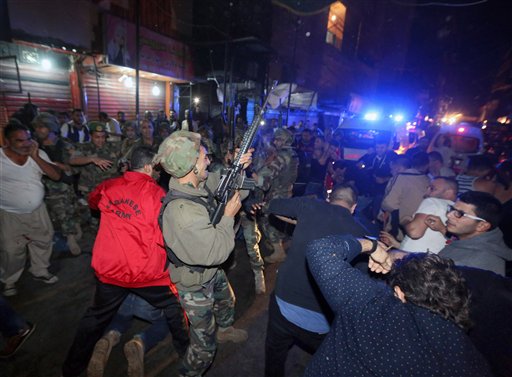
The Lebanese man said he and the other bombers arrived in the country from Syria two days prior to the attack. He was arrested, Lebanese security sources told CNN.
Authorities believe the man is behind two blasts Thursday that shook the largely Shiite town of Burj al-Barajneh, a crowded area of shops and cafes in a poor suburb south of Beirut.
The attacks came during the evening rush hour — the first bomb near a coffee shop, the second about 100 feet away near a bakery. A third would-be bomber died in one of the blasts before he was able to detonate his explosives belt.
IS — also identified as Daesh, ISIS and ISIL — said on social media the goal of the bombings was to kill Shiite Muslims. The claims of responsibility had not been verified.
The scene was one of chaos, carnage, fires and destruction, with many victims killed by flying glass and falling bricks. A government source suggested a bomber attempted to enter a crowded mosque but was stopped. At least 238 people were injured.
Lebanese police believe the suicide bombers were part of an IS cell sent from Beirut, though the militant group does not have a large presence in Lebanon.
Beirut’s southern suburbs were the site of several suicide bombings from mid-2013 until last year, when Hezbollah announced it would back Syrian troops loyal to President Bashar al-Assad. In those attacks, various terrorist groups claimed responsibility for what they called revenge against Hezbollah for its involvement with government forces.
Lebanese Prime Minister Tammam Salem declared Friday a national day of mourning. The country, polarized over the crisis in neighboring Syria, has not had a president in nearly two years, and the Cabinet has done little to close the country’s political vacuum.
UPI

Leave a Reply
You must be logged in to post a comment.